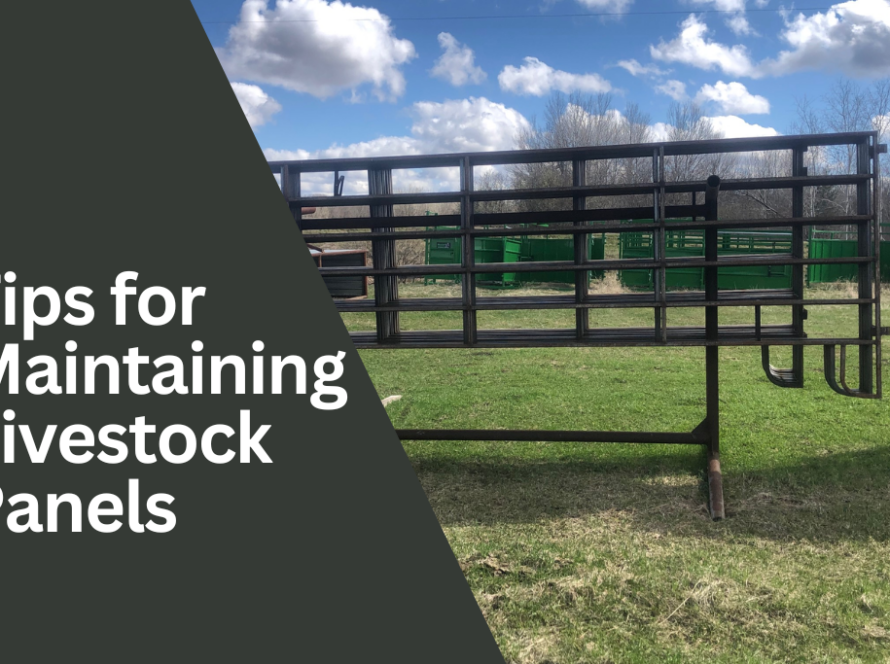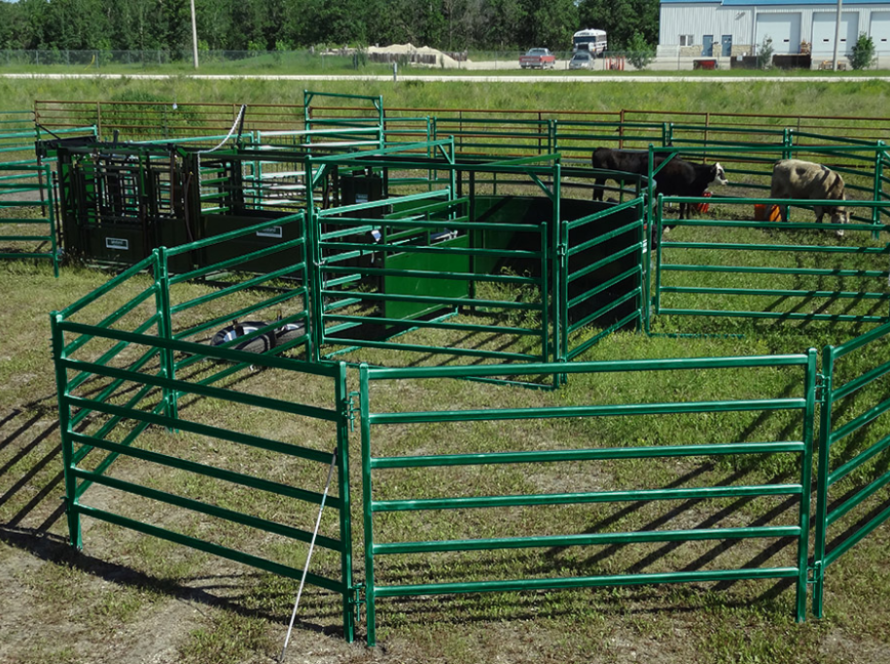Introduction:
Florida’s climate presents unique challenges for homeowners, farmers, and ranchers alike. With its hot, humid summers, frequent thunderstorms, and salty coastal air, Florida’s weather can significantly impact outdoor structures and equipment. For ranchers and farmers, selecting durable, weather-resistant livestock equipment is essential to ensure the safety, efficiency, and longevity of their operations.
When it comes to livestock equipment, such as panels, gates, chutes, and fencing, Florida’s extreme weather conditions can take a toll on materials over time. The combination of heat, humidity, and corrosive salt air means that materials not specifically designed to withstand these elements can quickly deteriorate. Choosing the right materials for livestock equipment in Florida is crucial to avoid frequent repairs and replacements and to maintain a safe, functional environment for your animals.
In this blog, we’ll explore Florida’s unique climate challenges and highlight the best materials for livestock equipment that can stand up to the heat, humidity, and weather conditions commonly found in the Sunshine State.
1. Understanding Florida’s Climate and Its Impact on Livestock Equipment
Florida is known for its tropical and subtropical climate, which can vary depending on the region. In general, the state experiences high temperatures year-round, with hot and humid summers. Along with the constant exposure to moisture, Florida is also prone to heavy rains, hurricanes, and saltwater from coastal regions. These factors can all contribute to the wear and tear of outdoor equipment, including livestock pens, gates, and panels.
Heat and Humidity:
The combination of high temperatures and moisture can accelerate the degradation of materials. Wood, for example, can swell, warp, or rot when exposed to constant moisture, while metals are susceptible to rust and corrosion. Without proper care, equipment can lose its functionality and need frequent repairs or replacements.
Saltwater Exposure:
Florida’s coastal regions face the added challenge of saltwater exposure. Salt can rapidly corrode metal surfaces and cause rust, weakening structures, and increasing the risk of failure. If your livestock equipment is placed near the coast, it’s vital to select materials resistant to saltwater corrosion.
Frequent Storms and Hurricanes:
Florida’s hurricane season brings with it strong winds, heavy rain, and flying debris, all of which can damage poorly designed or low-quality equipment. Livestock pens and gates need to be able to withstand high wind speeds and the impact of objects carried by storms.
2. Choosing the Right Materials for Livestock Equipment
When selecting materials for livestock equipment in Florida, it’s important to choose those that are specifically designed to withstand the state’s extreme weather conditions. Let’s explore some of the most durable materials for livestock panels, gates, and other equipment.
Galvanized Steel:
Galvanized steel is one of the most popular choices for livestock equipment in Florida, thanks to its strength and resistance to rust and corrosion. The galvanization process coats the steel with a layer of zinc, which provides a protective barrier against moisture and the harsh elements of Florida’s climate.
For ranchers and farmers in Florida, galvanized steel is ideal for gates, panels, and fences because it resists the damaging effects of humidity, rain, and saltwater. Unlike regular steel or iron, galvanized steel will not rust easily, making it a long-lasting and low-maintenance option. Additionally, galvanized steel is incredibly strong, providing the durability needed to contain large animals like cattle.
Powder-Coated Steel:
Powder-coated steel is another excellent material for livestock equipment in Florida. Powder coating provides an extra layer of protection over the steel, making it more resistant to scratching, fading, and corrosion. This coating helps prevent moisture from reaching the metal, further protecting it from rust and deterioration.
The added benefit of powder-coated steel is its ability to withstand Florida’s intense sunlight. The coating helps prevent fading and discoloration, keeping your livestock equipment looking new for longer. Powder-coated steel is a popular choice for gates and panels that require both strength and aesthetic appeal.
Stainless Steel:
Stainless steel is one of the most durable metals available, and it’s particularly effective in environments with high moisture and salt exposure, like Florida’s coastal regions. Stainless steel is highly resistant to rust, corrosion, and staining, making it ideal for livestock equipment used in areas that experience frequent rain or are located near the beach.
While stainless steel is typically more expensive than galvanized or powder-coated steel, its long lifespan and superior resistance to rust make it a worthwhile investment for those looking for equipment that can withstand the harshest Florida conditions.
Vinyl-Coated Steel:
Vinyl-coated steel is another option that is resistant to corrosion and weathering. The vinyl coating adds an extra layer of protection against moisture and dirt, helping to keep the steel underneath clean and in good condition. Additionally, vinyl-coated steel has a smooth finish that is less likely to rust or corrode, making it a great choice for gates and fencing.
One of the main benefits of vinyl-coated steel is that it’s easy to clean and maintain, which is particularly useful for farmers and ranchers in humid climates like Florida. Additionally, vinyl-coated steel panels are often more affordable than stainless steel or powder-coated options.
Treated Wood:
While metal is often the go-to choice for livestock equipment, wood can still be used in certain situations. However, in Florida’s humid climate, wood must be treated to prevent rotting, warping, and insect damage. Pressure-treated wood is commonly used for fences, posts, and gates, and it can provide a rustic, natural look while still offering some protection from moisture.
To make wood more durable in Florida, it’s important to use treated lumber that’s specifically designed for outdoor use. Additionally, it’s crucial to maintain wood equipment regularly by applying wood preservatives and sealants to prevent moisture infiltration.
3. Additional Considerations for Livestock Equipment in Florida
Beyond material selection, there are a few additional considerations to keep in mind when choosing livestock equipment for Florida’s climate.
Maintenance and Longevity:
While the materials we’ve discussed are all durable, they still require some level of maintenance to ensure their longevity. Galvanized steel, for instance, may still develop rust over time if the coating is scratched or damaged. Regular inspections and touch-ups will help maintain the equipment’s durability.
Similarly, vinyl-coated and powder-coated steel may need occasional cleaning to prevent buildup from dirt, salt, or grime. In the humid environment of Florida, it’s important to check your livestock equipment for signs of corrosion or wear regularly and address issues before they worsen.
Impact of Sunlight:
Florida’s intense sun can be harsh on livestock equipment, especially on materials like vinyl and wood. While metals such as galvanized steel and stainless steel are generally more resistant to the sun’s rays, wood and vinyl may begin to degrade over time. Applying UV-resistant coatings or using materials designed for sun exposure can help mitigate this damage.
4. Florida Panels and Gates: Tailored for Durability
If you’re located in Florida, it’s crucial to choose panels and gates that are specifically designed for the region’s conditions. Florida panels and gates made from galvanized or powder-coated steel provide the necessary protection against moisture, heat, and salt, ensuring your livestock equipment lasts longer. Additionally, these materials are more likely to withstand the impact of storms and high winds, which are common in Florida during hurricane season.
By selecting the right materials and keeping your equipment well-maintained, you can ensure that your livestock equipment will stand the test of time, even in Florida’s challenging climate.
Conclusion
Choosing the right materials for livestock equipment in Florida is essential to maintaining a safe, efficient, and long-lasting operation. With the state’s hot, humid climate and exposure to saltwater, it’s important to invest in durable materials such as galvanized steel, powder-coated steel, or stainless steel, which are designed to withstand the challenges posed by Florida’s weather conditions.
Whether you’re building a new fence, installing gates, or upgrading your livestock pens, selecting high-quality materials will save you time and money in the long run by reducing the need for frequent repairs and replacements. By choosing the right materials and maintaining your equipment, you can ensure that your livestock operations remain smooth and effective, no matter what the Florida climate throws your way.
FAQs
1. Why is galvanized steel a good choice for livestock equipment in Florida?
Galvanized steel is resistant to corrosion caused by moisture, humidity, and saltwater, making it perfect for Florida’s climate. It provides strength and longevity, even in harsh weather conditions.
2. How can I protect wood livestock equipment from the Florida climate?
Pressure-treated wood is ideal for outdoor use, but you should also apply sealants or wood preservatives regularly to prevent rotting and warping from humidity and moisture.
3. Are there any special considerations for livestock equipment near the coast in Florida?
Yes, saltwater exposure can rapidly corrode metal equipment. Stainless steel or high-quality galvanized steel is recommended for coastal areas as they are more resistant to rust and corrosion.
4. How do I maintain vinyl-coated steel panels and gates in Florida?
To maintain vinyl-coated steel, clean it regularly to prevent dirt and salt buildup. Inspect the coating for damage and touch up any scratches to prevent rust from forming.
5. Can livestock equipment handle Florida’s hurricane season?
Yes, but you should select sturdy, weather-resistant materials such as galvanized steel or stainless steel. Also, make sure the equipment is installed properly to withstand high winds and flying debris.



